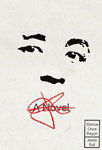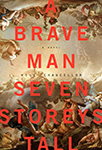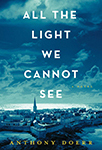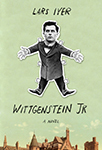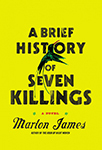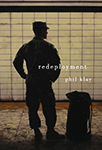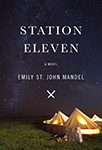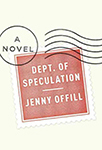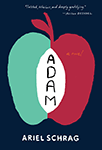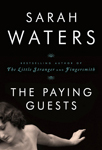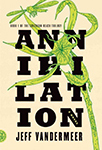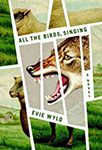by Jesse Ball
30% OFF at Powell’s »Elliot Ackerman: Alien versus Predator, too cute.
Beelzebub versus the Archangel, been done.
None of that minor league crap: It’s the Tournament of Books, so we’re talking sheep-eating wolves versus Jamaican drug lords, and that means we’re talking Evie Wyld’s All the Birds, Singing versus Marlon James’s A Brief History of Seven Killings. Neither of these books is going to treat you nice. When you settle down to read, don’t run a bath, and toss your chamomile tea out the window. I’d suggest you pour yourself three fingers of whiskey, grab your sharpest kitchen knife, lock all the doors, find a hard-backed chair—better yet, a stool—and get a pack of smokes, if you’re still into that. These novels are about violence, people on the run from their past, and, for a couple of lucky characters, a sliver of redemption.
So let’s start with the James.
The book is an epic rendering of political and criminal violence in Jamaica from the 1960s to the 1990s told through a chorus of voices—think Faulkner’s As I Lay Dying on a larger scale, with a failed assassination attempt against Bob Marley substituted for Addie Bundren’s funeral. The book builds slowly—it’s a big book, clocking in at nearly 700 pages—but the characters are so raw, and the language so sharp, I pretty much forgot I was waiting for an assassination attempt to occur. Take for instance this passage, where rising gang leader Josey Wales is describing his boss, the infamous but aging Papa-Lo:
The man not getting soft, he just reach the age where the person in the mirror is an old man who don’t look like him anymore, and he’s just thirty-nine. But that’s an old age out here, the problem with getting so far is that he don’t know what to do with himself. So he start to act like he no longer like the world he himself help create. You can’t just play God and say I don’t like man no more so make me wipe slate clean with flood and start again. Papa-Lo start thinking too deep and start thinking that he should be more than what he is. He’s the worst kind of fool, the fool who start to believing things can get better.
Just like Josey Wales mentions in the above, James renders a cruel struggle between governments, crime syndicates, and big business to instate their version of a new Jamaica. And if at times the novel bogs down (after the assassination attempt, for instance, when James delivers nearly 100 pages of virtually every participant’s point of view on the event), he knocks us back to our senses with a few adroit plot developments as well as some bareknuckle scenes of violence, like this description of gang member Bam-Bam witnessing his father’s rape then murder:
And he groan and groan and groan and fuck my father head then pull himself out and hold my father head steady and fire. Pap … The blood splat on the wall. My gasp and the gunshot go off the same time so nobody know me under the blanket still.
Jesus …
Speaking of violence, let’s get to Evie Wyld’s All the Birds, Singing. This tightly wound novel opens when the sheep on Jake Whyte’s farm begin turning up mysteriously devoured. Jake is a young woman with a shadowy history who’s fled to a remote British island. The main tension in the novel is the slow divulgence of her past, which is revealed in the present tense, and her present, which is revealed in the past tense, a conceit that gives the narrative immediacy, propelling its backstory forward. For somewhere in that past lies the secret of what’s devouring those sheep.
I found it easy to lose myself in both these books, but tonally they were quite different. Whereas the vibrant Jamaica James creates made me want to take to the streets, calling my neighbor who mows his lawn at 7 a.m. each morning a bomborass, the haunted world Wyld’s characters inhabit made me want to lock myself in that room I mentioned before, the one with the whiskey, stool, and sharp knife. Passages such as this serve as a chilling and gradual disclosure of who Jake Whyte is and who or what might be coming after her:
After the smokes, I have a long hot shower and get into bed still wet so that the ceiling fan will cool me off while I sleep. I dream of the sheep out there along with Otto and Kelly, and start up in the night with my heart pounding wondering what will happen to them. I sleep again but wake at dawn to throw up over and over into the loo, like I’m turning inside out, getting rid of the chops and the dog hair, Otto’s tongue and Kelly’s mackerel breath … I watch the day come while I smoke a Holiday and the birds sing and everything smells brand-new.
So who are Otto and Kelly? Why is Jake vomiting? And why are all those damn sheep dying? Wyld expertly orchestrates this slow reveal, and if you hold on through the scenes of rape, dismemberment, and one graphic portrayal of what happens when you don’t know how to properly use a set of wool shears, Wyld’s writing offers great rewards. Working through this novel by flashlight in a power outage, well after midnight, was probably one of my most enjoyable reading experiences of the past year.
Lucky me, to get two good novels to read.
James’s Jamaica is so vivid, and his characters so deep, that it’s an achievement that can’t be denied. As I mentioned above, some parts of the James are more rewarding than others, but overall he creates a layered and fully realized world. The Wyld is a much shorter book with a less ambitious scope, but I don’t think this prejudiced me. I’ve always been a fan of the “big book in few pages.” Still, I never became convinced that Wyld had written a big book. Her prose is clean and beautiful, and narratively she performs a minor miracle holding together the tension of the mysterious sheep killings, but the novel’s conclusion hit a flat note for me and it felt like she grew bored with a few of her characters, abandoning them along the way. That being said, I enjoyed reading All the Birds, Singing and A Brief History of Seven Killings as a pair. If James’s book is about killing, Wyld’s is about how some stories just never die.
Kevin: John, you know that one of my fiction peeves is the unpopulated novel—fictional worlds that don’t seem to contain any characters except those who are essential to the plot. A Brief History of Seven Killings does not have this problem. There are a million characters in this story, and we hear a lot of their voices over 700 pages. Those voices are also distinct, often speaking in varying degrees of dialect. This is a novel that makes you work. But James has put an admirable amount of effort into this story and the payoff for the reader is extremely rewarding. As much as any novel in this year’s ToB, I would describe A Brief History of Seven Killings, if I were using blurb-speak, as an “achievement.” It is messy, as all novels, and especially ambitious novels, are, and Judge Ackerman is right to point out that there are parts of the story that are necessarily less compelling than others—parts where you feel the weight of the unread pages. But, man, that’s a small price to pay for having read it.
John: This comparison may sound crazy, but in terms of its narrative span, A Brief History of Seven Killings reminded me of George R.R. Martin’s A Song of Ice and Fire series. Martin writes in third person and James conjures his multitudes in first, but the task of illuminating a particular space—physical, mental, spiritual—seems similar.
Kevin: You also have that same catalyst of conniving factions here—political, criminal, social—all working in their own self-interest. Judge Ackerman name-checks As I Lay Dying. That nailed it for me.
John: As you note, the pleasure of A Brief History… is inextricably entwined with its challenges. Having been thrilled by The Book of Night Women previously, James’s follow-up was a week-of-release purchase for me. But I soon realized that it was going to take much more mental capacity than I was prepared to give it during the semester, so I had to wait for winter break to tackle it.
It’s the kind of novel where you want to try to get 150 pages in during the first sitting. It’s a slow-acting potion, but once it took hold, it was plenty potent. Reflecting on the experience, I’m still marvelling at those voices, each distinctive.
But I could’ve easily envisioned an experience where I never made it through, where I was too involved with what’s going on in my own world to let myself get caught up in someone else’s. The goodwill that James had sowed with his previous book went a long way for me. I also have to wonder if the circumstances of the tournament, where the judge must read the novel in a relatively compressed period of time, plays to its strengths.
It looks to have vanquished a formidable foe here. Maybe it has some legs.
Kevin: Yes, let’s talk about that formidable foe. There’s a small bookstore in Glen Ellyn, Ill. (called The Bookstore, actually) that we became aware of because they are one of several stores and libraries throughout the country that make a big deal about the ToB each year. They create a big display for the window, which they update every day, and they tweet about our Rooster more often than Anthony Weiner tweets about his.
After we had compiled the long list, but before we had announced this year’s contenders, we went to the staff of The Bookstore and asked them to recommend the novel from 2014 that they had been recommending to their customers with the most enthusiasm. That book, we promised, would skip the usual process and go directly to the shortlist. They came back to us immediately with All the Birds, Singing.
This novel had completely escaped our notice. It just wasn’t on our radar. Now that I’ve read it, I have to tell you I’m embarrassed that I didn’t know about it. It’s a terrific book. Many, many thanks to the folks at The Bookstore for putting it forward. Killer rec.
John: I feel like I’m on top of these things as just about anyone, and All the Birds, Singing didn’t make my ridiculously exhaustive “watch list” at the end of last year’s tourney, though Rick Springfield did.
I didn’t even recall the cover when The Bookstore tapped it for the tourney. I’m even more embarrassed to admit that I didn’t have time to read it.
I didn’t read Rick Springfield’s novel either, as far as you know.
Kevin: The big reader question that I’ve been getting for the last 24 months or so is, “I loved Gone Girl, what do I read next?” My new answer to that is All the Birds, Singing. It is dark. It is exciting. The writing is lovely. The twists have real impact. The narrator is not unreliable, exactly, but the two stories she is telling us, one from the present forward, and another from the present backward, reveal her character in a shocking, slow burn. I was blown away by it.
But do I disagree with the verdict? I don’t. The scope of James’s novel is too impressive, and the execution is masterful. I would have advanced it, as well. It has a tough bracket, but I think you have to consider A Brief History of Seven Killings an early favorite in the competition.
Tomorrow, the surprise literary juggernaut, All the Light We Cannot See by The Morning News’s own Anthony Doerr, takes on the indie underdog, Wittgenstein Jr by Lars Iyer.


